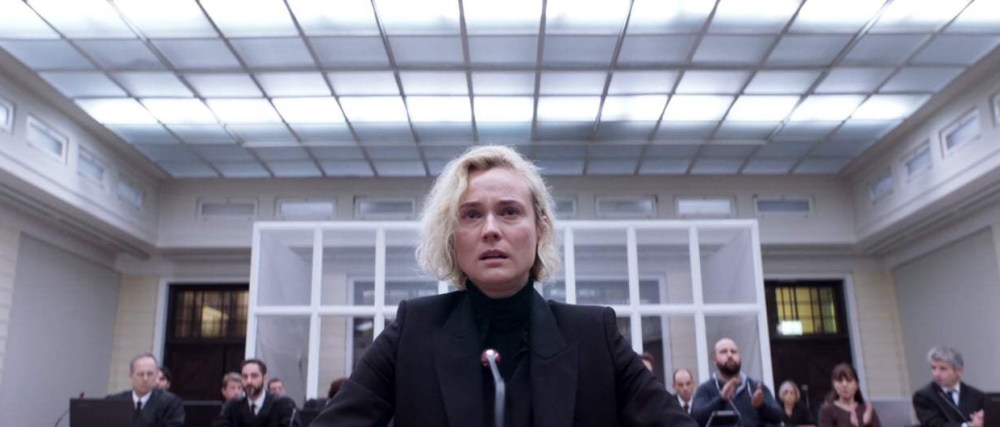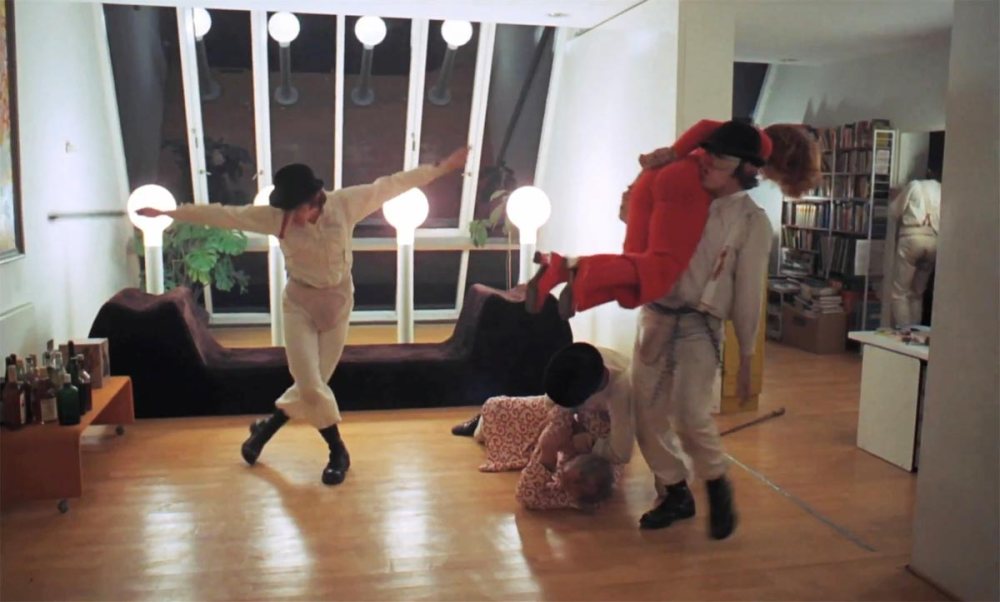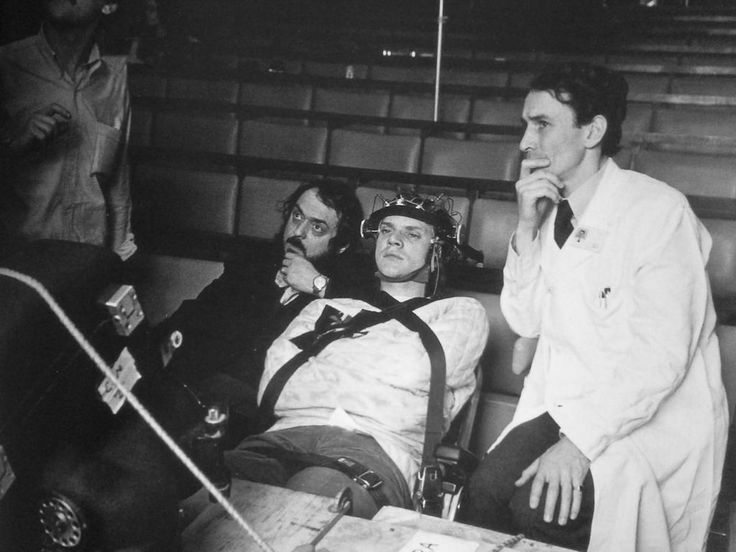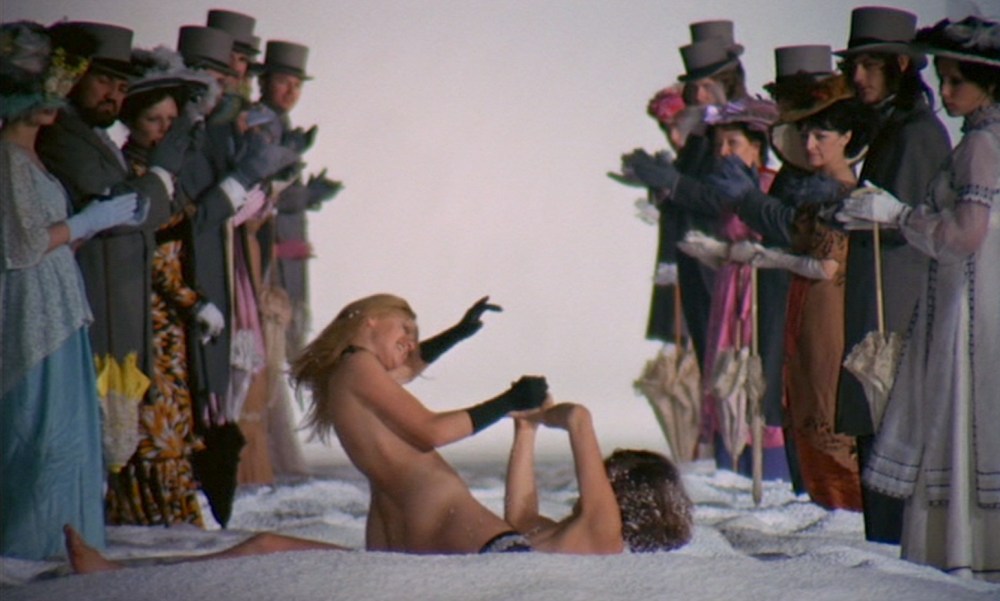Movies of the Week: Mission: Impossible (1996) / M:I 2 (2000) / Mission: Impossible III (2006) / Mission: Impossible – Ghost Protocol (2011) / Mission: Impossible – Rogue Nation (2015) / Mission: Impossible – Fallout (2018)

Brian DePalma, John Woo, JJ Abrams, Brad Bird and Christopher McQuarrie direct Tom Cruise, Emmanuelle Beart, Jon Voight, Ving Rhames, Thandie Newton, Dougray Scott, Michelle Monaghan, Philip Seymour Hoffman, Simon Pegg, Jeremy Renner, Paula Patton, Lea Seydoux, Rebecca Ferguson, Sean Harris, Alec Baldwin, Henry Cavill, Vanessa Kirby and Angela Bassett in this espionage action series where Ethan Hunt leads ever changing teams of IMF agents to stop a level of international anarchy that the regular authorities cannot.
Tom Cruise was at the height of his powers when he decided to “go franchise”. 1996 was still the peak era of the star. Tom Cruise’s name above the title guaranteed at least $100 million dollars in the bank. Even if it was a camp frilly movie about closeted queer vampires cohabiting through time. And that was when a $100 million final take was a studio’s wildest dreams for a blockbuster, rather than a disappointing opening weekend. Big name actors sold films. Not intellectual properties or sequels.

Film series were unreliable business. Indiana Jones / Lethal Weapon / Back to the Future were magnificent blips. In the 1990s, most follow-ups made 60% of their first entries gross. The box office landscape was littered with underperforming disappointments like Gremlins 2: The New Batch, Ghostbusters II, Batman Returns, My Girl 2. And if a franchise did somehow get to a third entry, the rot had often set in with executive interference neutering what attracted audiences in the first place (Alien3 being the prime example). Bond had only just been dormant for seven years. We hadn’t seen a Star Wars in 13 summers. Audiences went to see reliable face married with interesting concept. They were in no way loyal to continuing narratives.
Yet Cruise chose to hitch his wagon to a remake of a dated show still in syndication with an eye to sequels. And chose hard. He took two and half years off from other projects while making Mission: Impossible 1. It was his first producing credit. The movie was made under his own banner with producing partner Paula Wagner. To say Cruise invested in Mission: Impossible is an understatement. He put all his chips into bringing the TV show to the big screen. His star power, the momentum of his career and his credibility as a Hollywood power player. If Mission: Impossible failed only he would be visibly responsible for the package.

Why the gamble? I think Cruise saw that in the short term that dramas (slick, starry but unspectacular) like Rain Man, A Few Good Men or The Firm’s ability to generate Top 10 year end earning was waning. This was the age of Jurassic Parks and Twisters and Independence Days. Super smashes with no star power. Mission: Impossible was a concerted effort to align himself to a brand that could deliver the large scale, epic popcorn visuals that audiences were moving towards. A tentpole he could return to whenever his money making clout needed propping up.
And he rebranded himself as an action star. Sure, Top Gun had those zippy aerial dogfights but in the main a Tom Cruise movie was about a cocky kid rising to the top of the hierarchy through charm and innate skill. The set piece of a Tom Cruise flick might involve running from A-B but the fireworks were more often than not him facing down an older Jack Nicholson, Paul Newman or Gene Hackman rather than a nuclear bomb or natural disaster. Mission: Impossible would reboot the Cruise persona from cocky winner to man of action. Still youthful looking to this very day, I think in the long term 30 something Tom knew people would grow tired of seeing a middle aged man always beating the system unless the system threatened more than just him.

Interestingly, Cruise chose Brian DePalma to direct. On paper, a strange choice. A struggling movie brat auteur whose predominant interests are Hitchcock homage, sleaze and schizophrenic killers. Yet his CV also contained The Untouchables… a glossy studio action flick that faithfully updated a beloved TV show to critical and financial victory while anointing Kevin Costner as the thinking man’s action hero. DePalma’s obsession with iconic, tension building set pieces and playful visual misdirection (his films are littered with daring cons and sleight of hands at both his protagonist and audiences expense) fit the world of betrayals and covert espionage that Mission: Impossible was remoulded into. While not a safe pair of hands, DePalma brought an exciting air of risk and an assured indication of artistry to the project. See also; the employment Oscar winning screenwriter Robert Towne. And arthouse thesps Emmanuelle Beart, Jean Reno, Kristin Scott-Thomas, Vanessa Redgrave and Ingeborga Dapkūnaitė. This smash and grab raid on the summer ticket buying populace draped itself in the fineries of prestige. No SNL screeching comedy sidekicks or Burger King tie-in deals for this production.
When it was released, when I went to see it that summer, Mission: Impossible felt like a strange beast for a mega hit. It was a film with only three obvious action moments. And, a few disposable linking scenes aside, these set pieces were essentially the movie entire.
Failed Mission.
Langley Heist.
Eurostar Finale.
Now the last two sequences are superb. The dangling vault robbery is one of the most gripping, near silent, big budget moments in modern cinema. And Cruise dangerously leaping back and forth from a speeding train to an out of control helicopter while all the narrative threads are tied off is a redemptive moment of ridiculous largess. But it is fair to say that that Prague opening is a bit of a shock.
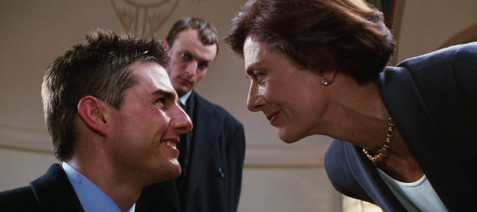
Small stakes. Drawn out. Glamorous rather than particularly overblown. The twist that his team is killed off in the first fifteen minutes leaves a strange taste in the mouth for fans of the original show. By leaving Cruise and a pretty girl as sole survivors the Mission: Impossible format has seemingly been sacrificed for a romantic lone hero narrative. And the rushed storytelling (chosen in hindsight to cover up later twist revelations) of the team massacre starts this mission on a rocky basis.
On further watches the sins of the first act can be justified. Cruise’s Ethan Hunt does quickly reassemble a new team of disavowed agents. He does uncover the truth behind what seemed like plot holes or sloppy filmmaking at a first glance. He even gets thrown into moments of spectacular risk as he tries to clear his name. He doesn’t however establish himself as anything more than an extension of Tom Cruise. No character other than a blank but self assured achiever emerges. We hear he has a mother who lives on a farm with her brother. That’s about all of Ethan Hunt’s pre-1996 backstory we ever get. Ever.

As for rebranding Cruise as an action hero Mission: Impossible was a success but almost inspite of itself. Despite being praised for over-the-top action, only five gunshots occur throughout the entire film, none of them from Tom Cruise. He might put his body at risk during the vertiginous Langley computer safe and Channel Tunnel stunts but in the main M:I is a very talky film. Cruise has been betrayed by his leader, framed by his employers and I still can’t tell if gorgeously pouty Emmanuelle Beart is plotting against him. He takes on the system to clear his name and he faces down Jon Voigt in a youth gets the upperhand on the old guard showdown… just like in any of his previous hit dramas. Famously cobbled together midshoot the grand narrative is predictable and uninspired. An excuse to link together those three chunky cuts of blockbuster meat. Failed Mission. Langley Heist. Eurostar Finale. That’s really is your lot. It works but mainly from luck and goodwill from the sight of Cruise hanging above a white floor or flying betwixt an exploding rotator and screeching train carriage.
There are seeds however as to what the series would become. The franchise has disavowed Ethan Hunt in pretty much all but one of his adventures. We prefer seeing him on the run and improvising rather than having full access to IMF kit and resources. Rogue agent is more thrilling than employed worker. The villian being an insider has reared its head more often than not. That list of spies real identities has been revisited as the macguffin. Ving Rhames’ stylish hacker is an unwavering series regular. Romance is hinted at but rarely consummated (that clock ticks too loudly for lovemaking).

And then we have my favourite recurring moment in the Mission Impossible franchise: the awkward post-script beer. Turns out Ethan Hunt loves a cheeky pint with the lads after the world is saved and his name is cleared. This scene crops up again and again just before the end credits. And sure it can be useful just to have a moment to verbally tie off any plot loose ends (and if you are making it up as you go along as Episode One was, there will be loose ends that test audiences care more about than slumming it script doctors do). But the main purpose seems to be to advertise Hunt (and by explicit extension Cruise, himself) as an everyman. One of the boys who like a cold one after a hard day and can interact socially with mere mortals after a busy shift. These scenes are so awkward with their bolt upright seating postures and their dead eyed, thumbs up bonhomie that they are often the most unbelievable parts of the stories. And that’s in a series where a fifty year old man grips onto taking off planes with his bare hands and outruns AK-47 bullets in dead ahead tunnels. Tom, we love you. But stop including product placement moments programming us into believing that you are a normal human.
It is galling to believe Mission Impossible 2 was the most financially successful entry. Sure, later entries deservedly made more coin but that’s with higher inflation and more global markets to dredge. It is still the most successful entry in the US market and had the biggest opening weekend in the year 2000. And it is absolutely awful. Partly I think Cruise has used the series as a career defibrillator. Pumping up his rep with a surefire franchise entry whenever needed. But when M:I2 was greenlit he was still a bankable force to be reckoned with, and doing some of his most stretching acting work in Jerry Maguire and Magnolia. 2 only needed to exist to stoke the Mission brand’s fire for future use and therefore feels the baggiest, most self indulgent and most inessential. A real aberration on the rest of the series near perfect quality run.

The problem with M:I 2 is the oldest one is the book; all style, no substance. From the sheen of Cruise’s whooshing long hair to the Laser Quest resembling tech labs to the daft and dated use of bullet time slow-mo, this is a film so rooted in the look of Y2K that it felt played out even on release. Like Die Another Day or The Phantom Menace or The Mummy Returns it is a blockbuster so busy trying to graft the latest tech and stylistic innovations onto its old fashinoned adventure it becomes an anachronistic mess. Charmless, flat, stodgy. The only thing that sticks in the memory on the bus ride home is its artificiality.
Director for hire John Woo should have been a perfect choice for a more gung-ho Ethan Hunt actioner. His Hong Kong work was extravagant, iconic and kinetic while his Hollywood projects had a sincerity and a mania that, though diluted compared to the HK hard stuff, still stood out among the glossy blockbusters of the period. But allegedly Cruise and Woo clashed on set, causing the director to retreat into cliche and only really coming alive in the romantic first act. These hyper Hitchcock sequences feel like they are from a different film… another cinematic universe. And as Woo pays homage to Notorious and To Catch a Thief, he invest the visual interactions of Cruise and a game Thandie Newton with a directorial heat that the actors ho-hum chemistry can not replicate. Once the final hour of motorbike jousts, dove filled shoot-outs and ticking apocalypse clocks kicks in… the romance is cordoned off to the movie’s detriment.

Masks play their biggest part here in the series entire. There’s always been a lot of fun to be had in the obligatory scenes where a character pulls off his face to reveal he is someone else. The Lalo Schifrin theme kicks in, something deep within your nostalgia pit is fed and sated. And even though you can nearly always guess whenever a hoodwink is occurring you are satisfied the old standard has been revived. A Mission Impossible without a rubber mask trick would be like Lisa Loeb concert without an encore of Stay. It is what you bought a ticket to a Mission: Impossible film for. I’d be the worst director of a Mission sequel. If I had my way I’d be adding the “duh-duh-du-dah” signature three times a minute. And Woo’s film overuses the mask reveal to similar deadening effect. Considering he just came off of Face / Off… which played more holistically with idea of identity swaps and with more evenly starrier antagonists (and more engaging and memorable carnage)… the whole M:I 2 narrative feels like a rambling uncertain backtrack through this old ground. Woo would rather be making a Face /Off sequel or something completely different, Cruise needs a villian who feels like a threat. But then finding an actor who can genuinely threaten superhuman Ethan Hunt is THE constant niggle throughout the series. Dougray Scott goes for ham rather than even trying to fulfil that no win challenge.
It is easy to point out everything silly or sloppy about the second hit but it boils down to a decent idea is wasted. Could it be fixed? I’m not so sure. The virus love triangle plot has potential but the action lacks immediate peril. It has Anthony Hopkins delivering the great line “Mr. Hunt, this isn’t mission difficult, it’s mission impossible. “Difficult” should be a walk in the park for you.” Limp Bizkit’s nu-metal rap version on the theme is all kinds of bonkers. But Cruise feels lost in his own mix.
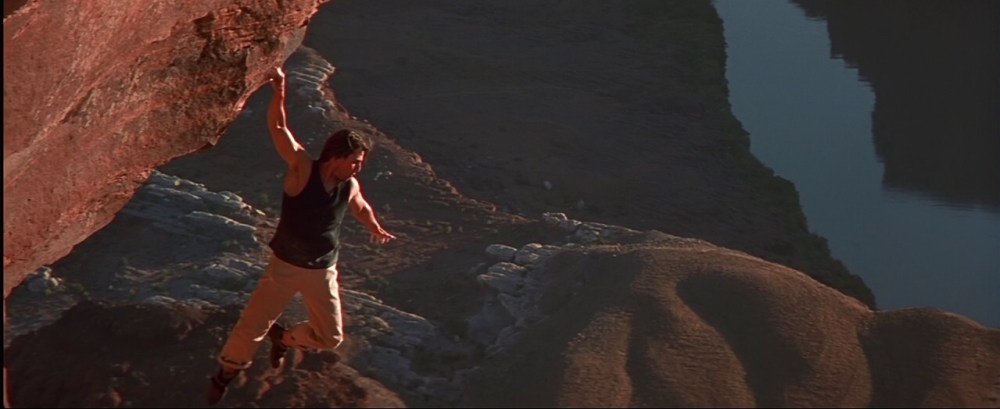
He’s moodier and more introspective than the usually gleefully focussed Hunt, given to waiting on the sidelines when the best Missions propel him headfirst into the blender with nothing but a grin and bag of tricks to get him through to the other side. For some reason Ethan is a reluctant hero in this adventure, his holiday is interrupted and he is reticent to exploit Newton’s cat burglar. It is understandable Cruise wanted more emotional shading to the Hunt avatar but the best global threat macguffins should leave no room for anything but slithery hints of a personal life.
And then Tom Cruise jumped on a couch. And Mission Impossible 3 only grossed $397 million in the aftermath. Only. 397,000,000.

In 2005, Tom had fired his long standing publicist, became volatile in interviews when negatively questioned about his religion and was entering into his fourth highly publicised relationship with a rising Hollywood star. His deranged, loved up, utterly restless interview on Oprah proclaiming his love for Katie Holmes watches like a rally for a madman. Viacom executive Sumner Redstone, publicly scolded Cruise in The Wall Street Journal for committing “creative suicide.” Cruise’s behaviour cost the movie between $100 million and $150 million in ticket sales, according to the studio owner. “It was the best of the three movies” said Redstone “While it will still be profitable, it grossed less than the other two movies.” Redstone moved Cruise off the the Paramount lot for costing the studio revenue they felt his antics had impacted. Cruise had made the studio over $3 billion up until that point.
Is it not possible that Mission Impossible 2, the glossy overkill fest that disappointed Cruise and franchise fans alike, had an equal part to play with the third movie’s lacklustre opening weekend? After all, his War of the Worlds remake opened within the same rocky period and was his biggest hit ever. Do the fans of South Park, who think he’s a closeted gay (and that that matters), or the housewives who read gossip columns, really impact the box office of a global star? If Paramount thought his year of barminess was truly an issue, why was the poster for this epic extravaganza merely Cruise crouching with a Bluetooth headset? Or did the previous entry’s quality betrayal dampen enthusiasm for another madcap rattler equally or more?

And let’s say it was the Cruise brand rather than the Mission brand suffering from past transgressions. He always presented himself as an overly earnest, overly enthused individual. His puppyish tenacity is part of the Cruise charm. There are moments in all of Cruise’s fictions when the mask slips and the mania bursts out. His out of nowhere backflip down the street in The Firm. His “Show Me The Money” desperation. His howling cries of “SAKE!” in The Last Samurai. The Cruise brand is surface level perfection, with a side order of outbursts and OTT physicality. He is the beautiful unageing nut who likes to dangle himself off of great heights when a stuntman could do it equally as well. Fist punching the air because he is screwing Joey Potter from Dawson’s Creek is the least of his sins. I’d be doing handstands and not listening to Oprah if any cast member of Dawson’s Creek was sharing my toothbrush holder. Even John Wesley Shipp.
What do we get? A cracking action thriller that at long last cemented exactly what it is that the Mission: Impossible brand promised. Essentially the plot is True Lies. Hunt has retired from field duty, due to get married to a beautiful doctor who doesn’t know about his derring do day job but then an arms dealer threatens the world and Hunt has to spring back into action putting his fiancé in jeopardy. We get an actual active team of agents assembled for rescues, kidnapping and heists, a close to the bone race against the clock, Hunt disavowed and a surprise baddie. It feels like it could be the first Mission:Impossible film in its faithfulness to the TV show’s format, it feels like it could be the last in that it gives Hunt a narrative exit and loving send off away from the life of a superspy.

JJ Abrams (creative behind Lost and rebooter of franchises such as Star Trek and Star Wars) here defines the series’ strengths. Relentless pelt forward so the plot can be both labyrinthian yet non-important, exposition is subservient to affray. Sheeny, glimmering real world setting that turns cityscapes into Michael Mann evoking fantasias of glass and glow. Teams that can support Hunt in his death defying antics, lending a Ocean’s 11 style capering air to the missions, a widened recurring cast beyond Ving and a set of familiar faces to cut to looking dumb founded when Hunt risks life and limb against the odds. And the big set piece happening slap bang in the middle of the running time.
Because set pieces don’t come as bracing as the bridge drone attack. Unless they are the Langley vault heist, the Burj Khalifa climb, or the underwater computer relay breath holder. Why have these fantastic sequences dead centre rather than as finales? Firstly as these are the big trailer moments. And if the movie ended after Cruise has survived the much advertised selling point stunt then you’d feel slightly cheated the movie hadn’t delivered on it Impossible trademark. By forcing Hunt to carry on for another act or hour after he has already survived a setpiece more awe inspiring and nerve shredding than your standard blockbuster adds to entertainment value of the series. Now the franchise has found its feet each entry exceeds and exhausts the viewer pushing us and Hunt further than a mere action movie ever could. A Mission is a marathon performed at a sprint, a skydive into a pit of lions and a Formula One race with a hundred added laps and moving finish line. It overdelivers and thrills you senseless by spoiling you. We have JJ Abrams to thank for defining this quality.

And then we have our first stand out performance aside from Tom Cruise’s… Phillip Seymour Hoffman’s Owen Davian. Sneering, aggressive, oily and dismissive. In just a few scenes he communicates to us he is a relentless agent of chaos and a risk to everything Ethan holds dear. You can not negotiate with or threaten pure evil. Until the very last moments he has the self assuredness of a man with the upperhand and it is telling that Hunt essentially has to kill himself to beat this chubby devil. It helps that Abrams frames his rollercoaster with death of Ethan’s new love. We chillingly know Michelle Monaghan’s civillian is doomed from the outset and the hero is going to have to sacrifice everything to beat Davian. Though a generic villain on paper, I’d say his scenes here are among Hoffman’s finest acting work.
Ghost Protocol came out after the standard five years wait later with a few changes. Paula Wagner had left her producing partnership with Cruise but JJ Abrams had helped develop the follow up under his Bad Robot brand. The advertising focussed on this being a team adventure. Cruise was front and centre but the rumour was Jeremy Renner had been cast in a support role specifically to be positioned as future lead if Cruise’s box office powers continued to decline. A Christmas release date was also chosen. Sensible decision – Cruise’s fan base is ageing, going to see a movie on opening night may no longer be a priority and a Christmas run opened the film out to be less opening weekend dependent. Also word of mouth helps holiday movies, with week long opportunities to fill screens a well made movie can do weekend level business for two weeks straight. And the Missions had always been made with quality over hype in mind.

The fourth entry is a colourful, upbeat adventure. A support cast has been established, the world now has a defined look and there’s a palpable faith in the delivery of the action. Ghost Protocol is very much a blockbuster that knows what it is and has fun with that. We open with Tom Cruise in a prison cell, taking part in a remote hack assisted escape / riot. He gets to show off his physicality, while there’s a slapstick enthusiasm to the sequence that carries on throughout the film. Animator turned live action director Brad Bird embraces the cartoony aspect of having the world’s biggest star do outlandish things, embellishing the intensity with glitchy tech and elegant precision. You can tell this was the most storyboarded of the series by the specificity of the imagery and edits. Ghost Protocol flows like ice on glass.
Cruise scaling the Burj Khalifa as part of a trade-off deception has to be standout sequence of the entire series. Yet Bird fills it with near misses and running jokes. The power drained suction gloves rebooting and reappearing after they have long been abandoned, surprise moments of peril just after we think Cruise has somehow made it… And then after he does survive clinging to the glass of the world’s tallest building we are thrown straight into the deception of the con itself followed by a bruising chase through a sandstorm. Once again when most franchises would be packing up shop, the IMF keep on with the thrills… without a pause for breath.

Simon Pegg’s Benji graduates from bit parter to a key player. The nebbish IT guy turned field agent. He’s a little overbearing in this but in later entries gels together with Cruise and Rhames to feel indispensable. Renner’s mysterious Brandt is a bit of a cold fish. I like Renner but he can’t carry a movie, certainly not one of this magnitude. Cruise’s job is safe for now. Paula Patton fills a similar role as Maggie Q does in the last episode, a beautiful but sexless extra pair of hands. Luckily, Lea Seydoux pops in for a few scenes as a curvaceous assassin to add a bit of glamour and danger to proceedings.
Such a shame that Ghost Protocol ends on an old man fight. Cruise, who just minutes earlier was jumping over speeding sports cars and fighting Russian secret service agents down escalators, seems to struggle to get a suitcase off an ageing university professor. Sure, he is in a constantly moving, automated car park but the doddering villian has the same disadvantage too. Strange how the series is less believable when it tries to suggest there is something Hunt / Cruise can’t do?

Which leaves us with Rouge Nation and Fallout. Blockbuster experiences so faultlessly crafted, so elaborate there is very little to say about them except… WOW! The Mission formula has been tinkered with to perfection, Christopher McQuarrie is now the recurring returning creative who understands what the maximum amount of people willing to buy a ticket to a Tom Cruise movie want from a Tom Cruise movie. His background as writer behind The Usual Suspects and Way of the Gun means he understands the concepts of caper, deception, threat and murky narratives better than anyone. His work as a script doctor on X-Men and The Wolverine shows he knows how to finesse a series of mega set pieces into a pleasurable, seamless theme park ride. His CV is 50% dominated by Tom Cruise vehicles whether writing or directing. He knows how to squeeze maximum value out of his star / employer. And he is delivering them with a far tighter frequency.
He never looks sideways at Cruise or ironically excuses his headliner’s relentless enthusiasm and commitment. Both of his missions embrace the indomitability of Cruise. His absurd willingness to chuck himself into incredulous action. Each film has a moment so OTT it is played for slapstick laughs but is secretly one of the most awe inducing stunts. In Rogue Nation it is Ethan’s topless acrobatic pole escape. He literally shimmies up a pole backwards, handcuffed, using what I can only describe as ‘Ab power’. In Fallout, it is an intense rooftop chase through London that openly laughs out loud at the sight of what would normal people do if Tom Cruise ran through their funeral or open plan office shouting into his earpiece. It feels like the London skyline has been built just to give Cruise a perfect Instagram location for his trademark run. Both scenes are tickled with the idea that only Tom Cruise has the star power to make these ridiculous moments thrilling yet amusing, improbable yet strangely truthful. As Ving Rhames wearily but lovingly says in the latest trailer “Same old Ethan.”

Whereas as the other directors brought their own visual style and tics to the series, McQuarrie smooths all those competing visions out into something consistent. He certainly likes an outlandish shirt but that’s about as personal as his visuals are. Equally, he revives the TV’s show villainous counterparts, The Syndicate successfuly. Instead of constantly having random people go rogue of their volition for each instalment, he formalises the Big Bad into a virulent anonymous team led by the whispering Hanibal Lecter-esque mastermind played by Sean Harris. Just as killing off the series’ best baddie (PSH) was Abrams’ noticeable mistake, keeping Harris’s fanatical genius alive is McQuarrie’s best addition to the longevity of the franchise. Ethan now has is very own Keyser Soze to deal with, someone who can break out or pull strings from a cell whenever a future storyline needs a bonus shot of antagonism.
Rebecca Ferguson’s shadowy Ilsa joins the team for these adventures too. A capricious British double agent painted as Hunt’s equal (and perfect unconsummated paramour). Ferguson adds an enjoyable uncertainty to the missions. Clearly a good egg but often working a different agenda to the IMF… some action sequences she helps the team, others she pulls the rug out from underneath them. Given Cruise’s personal history it seems his female co-stars now have to live in a box of unexplorable, potential romantic interest… if only there was time for him to settle down or give up world saving he’d be the perfect man… but as there’s not any spare time at all, they just have to pull their weight in the scams and shootouts. Fallout even brings back his ex-wife, again abandoned for world saving, and ends with an unfortunate shot where Ferguson and Monaghan stand next to each other, looking like twins. Turns out Ethan has a type.

Ferguson excels in Rogue Nation’s opera set piece. A Hitchcockian ruse, a game of cat and mouse… and cat and cat and cat and Benji, where various assassins chase each other around a production of Turandot. It is a bravura segment of filmmaking, one that dazzles with its unfussy efficiency and silky beauty. She slinks about all legs and menace. It adds a Bondian glamour to the series. A mode of high end lifestyle and extravagance that has crept in more and more. While the earlier adventures had the scrappy chase aspects of a Bourne film (and maybe more tellingly Harrison Ford remake of TV’s The Fugitive), the franchise has recently noticeably had its sights set on the high end excess that used to exclusively belong to Bond.
The luxury fashions dominate the palette. The cordoned off, 5 star playpens of the ludicrously rich are now the drop points or arenas of action. The car stunts and helicopter ramming chases are now produced with the same practical verisimilitude as golden era EON productions. Ethan Hunt globetrots and suits up and does the increasingly unsurvivable in a way that markedly outshines even 007. There is nothing comparable in scale or technical wonder as Fallout’s helicopter demolition derby in Kashmir finale. We’ve even started laying legacy Easter Eggs into the plot that hark all the way back to 1996. Vanessa Kirby’s crushing-on-Cruise arms dealer is “Max”’s daughter.
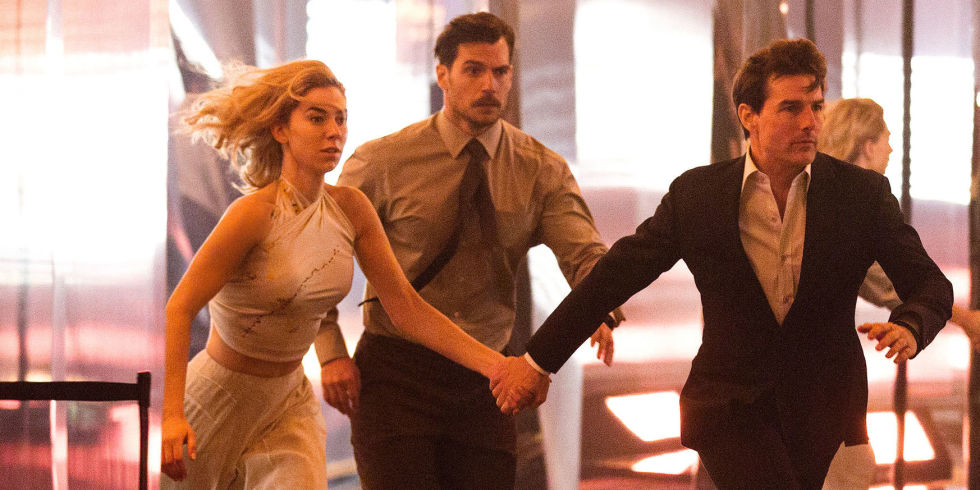
You probably haven’t see Fallout just yet so I won’t spoil its other surprises. But it leaves the franchise in rude health. It is a little overlong… and it doesn’t reinvent the wheel. In fact, its main flaw is having to live up to the perfection of Rogue Nation with no obvious further embellishments at its disposal. (OK, so there’s the welcome addition Henry Cavill’s mountainous jinx of a CIA overseer… but he feels custom made for this particular adventure). Yet it hits all the right notes, some ear burstingly loud… others surprisingly silent, to even greater effect.
Ethan Hunt has never really emerged as a character. Cruise himself paints himself as a superman. The stunt skill and daring of Jackie Chan. The intelligence to speak many languages and do high end physics calculations on a window. The parlour tricks of sleight of hand magic, lip reading or being able to hold his breath far longer than lung capacity can scientifically do. He now has the unweathered golden look of a Gregory Peck or William Holden, the same reliability and old school manliness. Ethan Hunt is Cruise. Cruise is Ethan Hunt. Expect him to go the extra mile even when no time is left. As Fallout underlined to us, he’s the man who chooses to “save one life over millions.” Yet will still go on to save millions no matter how difficult he makes it for himself. Personally I kind of like the finales where Hunt outwits the villian rather than out brute forces them. Rogue Nation’s cloak and dagger chess game through foggy London might be of far smaller scale but it works just as fulfillingly as the mid air chopper collisions of Fallout.

The Rolling Stones have their stadium tours. JK Rowling her Harry Potter spin offs. Matt Damon has Bourne. Cruise is now in a position that Mission: Impossible is essentially his early retirement home. Always there for him, even if his marketability in other projects slumps. He’s lasted longer than most stars (certainly only he and Denzel are the ones from their generation who have shown anything resembling consistent staying power.) I doubt outside this franchise he’ll ever again have a movie released that commands tentpole takings. And he doesn’t really need it. Sensibly, he should topline a few more of these extravaganzas over the next decade, mix up the support teams until a credible new “point man” star proves themselves, then slowly step back into the supporting mission mastermind role. “And Tom Cruise” rather than no Tom Cruise. That way he ages gracefully, the franchise avoids a risky full reboot and we still get the pleasurable surprise when greying Cruise abandons his office chair to save the day at the very last minute by turning up in the field.
Will he go that way? He has years to decide but given how sensibly he developed the franchise over two decades ago with this exact moment in mind you have to assume Tom Ethan Cruise Hunt is already forward planning where his nest egg can take him next. I for one am with him all the way.
8 / 3 / 8 / 9 / 10 / 8


